
COVID-19
OVC Households Health and Empowerment Project
UGX 0.00 raised of UGX 36,000,000.00 goal 0.00%- 0 Donations
- Finalized
- 0 Likes
Campaign Ended!
Share on

OVACAC (Ovacac - Orphans and Vulnerable Children Aid Centre) is a Community Based Organisation which serves young people and their communities by focussing on HIV and AIDS awareness. OVACAC exists to supplement the process of HIV prevention, restoring hope and improving the lives of vulnerable children, youth, families and communities affected by HIV infection and disease.
Ovacac implements programs in four major core program areas; Psycho-social support, Education, Human Rights and Health. The organisation targets youth, orphans and vulnerable children more especially as a result of HIV/AIDS.
The impact of HIV/AIDS is unique because it kills adults in their prime years and leave the most vulnerable, which deprives families and communities of the young and most productive people. HIV/AIDS is also deepening poverty, reversing human development achievements, worsening gender inequalities and eroding the capacity of government to provide essential services. When parents fall ill children are often compelled to leave school to take care of the ailing parents or due to diminished resources to keep them in school. HIV/AIDS scares their minds and are left with traumatized memories of society’s stigma towards them and many unanswered questions. In addition, children are particularly being affected by AIDS epidemic as they lose one or both parents to the disease, leading to a decrease in school enrollment and an increase in orphans and vulnerable children. Majority of OVC lives with a surviving parent who may eventually fall ill as well. Grandparents, uncles and aunts are also looking after orphans demonstrating that the extended family continues to share the burden in spite of hard economic situation.
OVACAC believes that orphaned children develop best when they are able to remain with their siblings within a family situation with an adult caregiver in their own community. The comfort of siblings, relatives and familiar authority figures and surroundings helps to mitigate the grief, insecurity and fears experienced by children who lose a parent. Orphans are also able to participate in their own traditions and cultures. In turn they are more likely to succeed in school, socialization skills and preparation for their future livelihood. HIV/AIDS prevention and advocacy for protection against OVC abuse and exploitation interventions will also be put in place to make sure OVC and other children in the communities are protected.

As we recognize that the children occupies a very unique and privileged position in the African society and that for the full harmonious development of their personality, the child should grow up in a family Environment and in an atmosphere of happiness, love, guidance and understanding! From a child’s physical and mental development, they require care in regard to physical, mental, moral and social development. Rural parts of Uganda have got large number of orphans than urban centers because people living in rural areas are not sensitized on prevention methods of HIV/AIDS. The age of orphans, however, is fairly consistent across parts of the country. Surveys suggest that about 15% of orphans are 0-4 years old, 35% are 5- 9 years old, and 50% are 10-14 years old. But despite of the efforts to improve the lives of the children, social indicators continue to show a decline in social and economic welfare of children. Also low levels of education among the whole population of the community has also been attributed to the increasing number of Orphan children as a result of HIV and AIDS scourge, poverty and poor health conditions. Worst of all, the child-headed household trend in Uganda is such that rural areas have 79.9%, of which 49.6% are male-headed and 30.3% are female-headed. The trend in urban areas is that of the 20% child-headed households, 10.5% are male-headed whereas 9.6% are female-headed (Uganda Bureau of Statistics-UBOS, 2000).
Therefore, it is against this background that this OVC initiative is being proposed to address the problem of the impact of HIV/AIDS in particular the plight of the vulnerable and orphaned children. The project will put in place short-term and long-term measures aimed at improving quality of life of OVC and the community psychosocial support systems. The long-term interventions will include Income Generating Activities (e.g. goat keeping, improved local chicken rearing ,kitchen gardening, making liquid soap, candle making, paper bag making), psychosocial support, organic farming to help OVC and community members to be self-sustaining. This will help in improving the welfare of OVC in a more sustainable way.
The project objectives are majorly but not limited to:
- Providing immediate needs and other timely needs of orphans like training them in the self reliance skills that will be available at the center.
- Nurture sick and malnourished Orphan children for better health and keep them well and strong through child survival program in partnership with established health units like Njovu Islamic Community Medical Centre.
- To train care givers in care giving skills to enable these children get adequate care, love and support
- To create awareness to the community and the outside world the need to protect and support the vulnerable children and the orphans as well as protecting their rights.
https://www.facebook.com/OvacacUganda
Related Campaigns
Take a look at other campaigns in the same category.
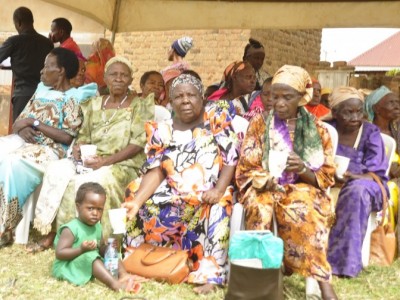
COVID-19
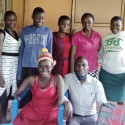 by James Kageye
No deadline
by James Kageye
No deadline
RASING RELIEF KIT FUNDS FOR 5000 HOUSEHOLDS.
This program is to run in Kimaanya-Kabonera Division, Masaka district with a pos...
UGX 0
0.00%
raised of UGX 168,000,000
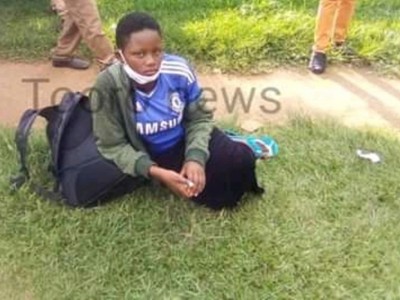
COVID-19
 by Mutuhe Obah
No deadline
by Mutuhe Obah
No deadline
SAVE MERCY
To help a 19 year old girl by names of Mercy Munessera who walked from Kampala t...
UGX 0
0.00%
raised of UGX 5,000,000
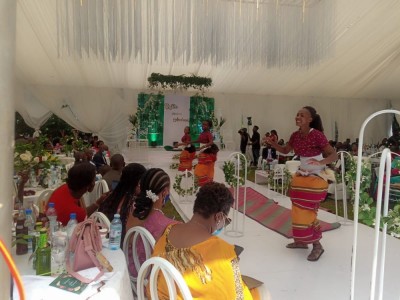
COVID-19
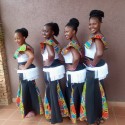 by Sumayiyah Mutesi
No deadline
by Sumayiyah Mutesi
No deadline
Make a difference, today
Ubuntu cultural troupe project The coronavirus outbreak has changed life as we k...
UGX 0
0.00%
raised of UGX 10,000,000